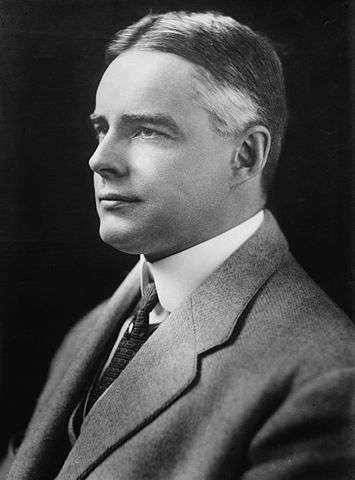Friday A/V Club: When the Governor Has a Libertarian Side
The Maryland governor who defied Prohibition, and the Utah governor who wouldn't pay his income tax

The most striking thing about this year's Libertarian ticket may be that it features a couple of former governors. Libertarians don't tend to be enthusiastic about elected officials in the first place, and that's especially true when it comes to the executive branch. Hardly any governors have a substantial libertarian fan base.
But there are exceptions to that, and they aren't all named "Gary Johnson." One is Albert Ritchie, governor of Maryland from 1920 to 1935. Another is J. Bracken Lee, governor of Utah from 1949 to 1957.
Ritchie was a fiscal conservative: He tended to keep taxes down, tended to keep the books balanced, and tended to reject federal aid. (I say "tended to" because there were exceptions to all of the above. But the pattern was clear.) He didn't believe the state should do nothing at all—he built roads, passed restrictions on the crab industry, and otherwise flexed his power when he thought it was necessary—but he thought the government in general and the feds in particular should be doing a lot less.
And he wasn't shy about defying Washington. In 1922, when Warren Harding asked 28 governors to call out the National Guard during a coal strike, Ritchie refused, declaring that "in the darkest hours of situations like these there often comes the time when with methods other than force men can finally be persuaded to meet and agree for the common welfare." And at the Governors Conference in Washington that year, when the president told the assembled guests that the states needed to enforce Prohibition, Ritchie declared that Maryland would not. Egged on by his friend H.L. Mencken, a fiery libertarian voice at The Baltimore Sun, Ritchie then went about making his state an island of tolerance in the war on booze.
As Mencken's biographer Marion Elizabeth Rodgers later wrote,
Maryland was now one of the wettest states in the union….Governor Ritchie had announced that places selling alcoholic beverages would not be bothered by state troopers—though they would have to pay state tax. But because speakeasies didn't legally exist, they were declared to be cigar stores. Each speakeasy had a front room, with a glass counter, filled with cheap cigars. There would be a door with a window. When you knocked on the door, all you had to say was, "Joe sent me."…
Alone among larger cities, Baltimore had little organized crime. Instead, it was quiet and orderly. The police went about their own business. The courts were not jammed with liquor cases. Federal agents were left to enforce Federal enactments on their own. And since the Feds found they had no police protection in Baltimore, raids gradually became more infrequent.
This is the era when Maryland came to be known as the Free State, a nickname that feels less appropriate these days.
And Lee? He mixed the fiscal conservatism and anti-globalism of a Taft Republican with a high level of social tolerance. As I've mentioned here before, he refused to crack down on drinking, gambling, and prostitution when he was mayor of Price; as mayor of Salt Lake City, he locked horns with police chief W. Cleon Skousen over budget issues, "vice" issues (including Skousen's efforts to ferret out homosexuals), and Lee's view that Skousen was "practicing Communism to fight it." In-between, while governing the whole state of Utah, Lee disobeyed the feds in a way that may not rise to Ritchie's level of defiance but still stands out: In 1956 he became, as far as I'm aware, the only sitting governor ever to refuse to pay his federal income tax. His reasoning was a little obscure—he didn't think it was constitutional to be forced to pay for foreign aid—but a certain level of crankiness goes with the nonconformist territory.
Now we come to the A/V Club portion of the post. In the video below, Lee discusses his policies and worldview on a 1952 episode of the TV show Longines Chronoscope. One of the men interviewing him, Henry Hazlitt, was a longtime libertarian journalist and, like Ritchie, a friend of Mencken's:
(For past editions of the Friday A/V Club, go here. For another installment of Longines Chronoscope—this one featuring Henry Wallace and Karl Hess—go here.)


Show Comments (16)